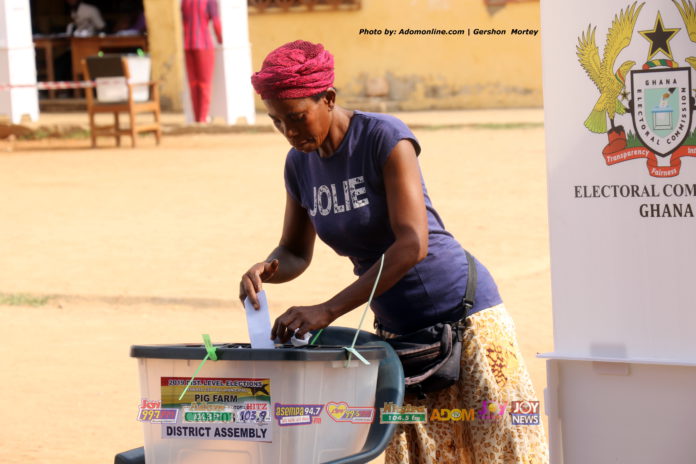A survey conducted by Research, Innovation, and Development has revealed that approximately 3.7% of Ghanaian voters are willing to sell their votes to the highest bidder.
An Associate Professor at Kumasi Technical University, Professor Smart Sarpong who led the survey said about 50% of electorates will vote on issues such as competency, track record, employment, education, corruption, and the economy, rather than the personality of candidates.
Speaking with Akua Boakyewaa Yiadom on Adom FM’s Burning Issues, he explained that the deciding factors for this year’s election are, competency 50%, track record 22.5%, party affiliation 19.1%, financial inducement 3.7%, and other factors such as religion and ethnicity make up the rest.
“One thing the research showed was that, now no politicians can go to a Ghanaian voter and just say anything and believe the voter will vote for him or her, because now the voters are becoming more descending and cannot be taken for granted,” he said.
Prof. Smart expressed concern about the 3.7% of voters willing to accept financial inducement.
He emphasized that, such practice should not be encouraged.
The survey also indicated that although the National Democratic Congress (NDC) is popular, its candidate, former President, John Mahama, is not the preferred choice for President.
In contrast, the New Patriotic Party (NPP) candidate, Dr Mahamudu Bawumia, is the most preferred for the presidency.
In terms of popularity percentages, Dr. Alhaji Mahamadu Bawumia scored 38.9% while John Dramani Mahama scored 36.1%, with the rest of the candidates getting 3.6%.

Prof. Smart cautioned against celebrating prematurely, as the survey did not suggest a clear victory for any party.
He pointed out that, 21.4% of participants have not decided who they would vote for, and an additional 3.6% favour other candidates.
Prof Sarpong hinted the outcome of the survey could lead to a run-off.
“People should not forget that the remaining candidate has a percentage of 3.6% and there are 21.4% said they have not decided whom they are voting for. This means that, if the other parties can pull a little from the undecided, it means the election is likely to go for a run-off so I don’t see why people are jubilating and others are also angry about the research,” Prof Sarpong added.
READ ALSO:

